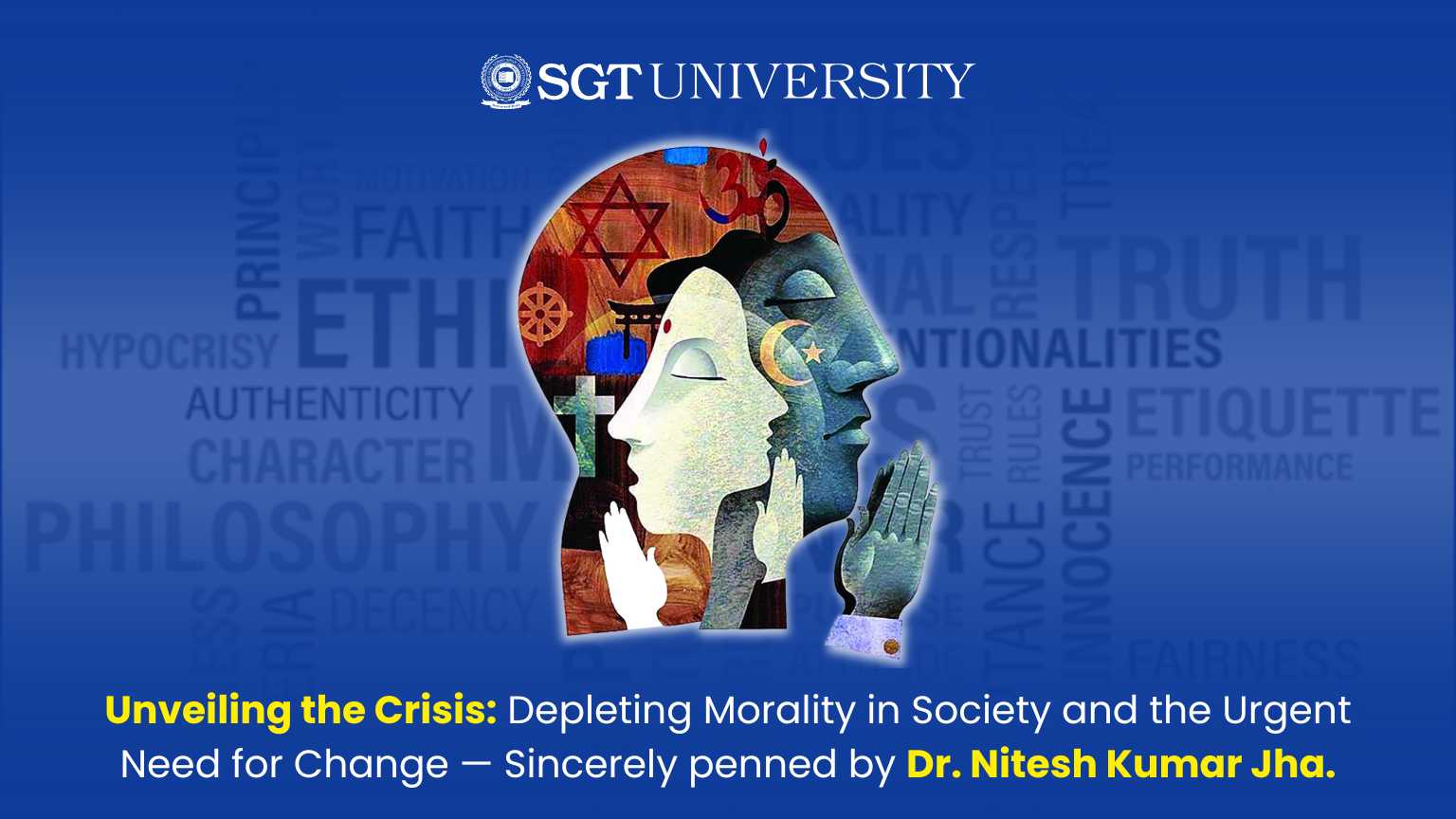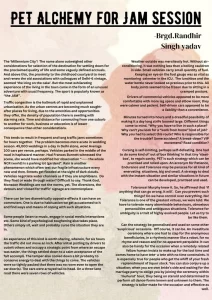Morality: What is it? Where does it come from? Who decides what is right and wrong? To whom is it applicable? What does science say about the development of morality? What role does our conscience play in encountering moral dilemmas? All of these questions need to be answered and addressed. Everyone has to introspect and answer these questions at each stage of their life.
Moreover, it is important for everyone to discuss morality with their peers, parents, elders, and others. The term “morality” is derived from the Latin word “moralis,” which means customs or manners. It encompasses beliefs related to behavior, distinguishing between right and wrong, acceptable and unacceptable. Morality is based on principles and values prescribed by society. Justice, truth, trust, commitment, caring, and responsibility are some of the basic requirements that indicate a person is behaving morally.
Sociomoral reasoning refers to an individual’s ability to determine whether a behavior is right or wrong. Moral Development Theorists suggest that individuals become morally mature as they grow older. The primary sources through which individuals acquire the ability to reason and make moral judgments are their interactions within the family, school, society, and workplace.
Kohlberg’s Moral Development Theory in Cognitive Science proposes that morality develops in six stages across three different levels: pre-conventional (ages 3-7), conventional (ages 8-13), and post-conventional (adulthood). Gibbs suggests that morality develops in four stages across two levels: immature moral reasoning and mature moral reasoning. It is all dependent on an individual’s information processing ability. The Social Information Processing Model in cognitive psychology states that inadequately and inappropriately processed information at the mental level distorts perception, attitudes, thoughts, and moral judgment. Moral maturity can be understood in a progressive order through the following sentences:
Individuals act to avoid punishment and seek reward and appreciation.
They act for others because they expect reciprocation when they are in need. This stage is characterized by the principle of “you scratch my back, I’ll scratch yours.”
They lack concern for others’ feelings and emotions, assuming that their behavior will not impact others.
They act based on their sense of personal responsibility. They believe that doing wrong will hurt their own conscience, leading to persistent guilt.
At this stage, individuals consider universal principles of morality when their conscience comes into play.
In an era of rapid social change, where traditional values, expectations, and beliefs are shifting, individuals may fail to behave in a morally mature way not only in their early years but also during middle age and even in late adulthood.
Morality helps individuals adapt better, not only within their family, friends, and intimate relationships but also in society and professional workplaces. Without moral maturity, we cannot envision a better and more developed society.
Written By:
Dr. Nitesh Kumar Jha
Department of Clinical Psychology
Faculty of Behavioural and Social Sciences
SGT University Gurugram




